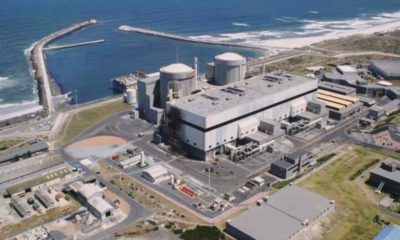Business
Shell’s Deepwater Gamble Faces Fierce Pushback in South Africa

Shell’s Deepwater Drilling Plan Sparks Legal Storm Along SA’s West Coast
Shell is once again in hot water in South Africa, and this time, the stakes are deeper than ever. Literally.
The oil and gas giant is facing a fresh wave of opposition from environmental groups and coastal communities after receiving the green light to drill several ultra-deep offshore wells along the West Coast. The project, known as the Northern Cape Ultra Deep (NCUD), is part of an industry-wide scramble to tap into oil reserves in the wake of Namibia’s recent energy discoveries.
But as Shell gears up to go 3,200 metres below the ocean’s surface, a coalition of activists is sounding the alarm, and they’re not just worried about whales and waves.
‘This is the third-deepest well in the world’
Neville van Rooy, community outreach coordinator at The Green Connection, says the company’s Environmental and Social Impact Assessment Report (ESIAR) is riddled with gaps and dangerous understatements.
“If this drilling goes ahead, it would be the third-deepest well on the planet,” Van Rooy explained. “At those depths, the pressure is immense, temperatures are near freezing, and there’s total darkness. The risk of something going wrong is high, and Shell hasn’t shown us how they’ll handle it if it does.”
According to the appeal, the oil giant used a 20-day oil spill model based on far shallower projects. This assumes a capping stack in Saldanha Bay could seal off a blowout in time, but experts say that’s unlikely. That stack isn’t even built for these depths, and the only suitable equipment is located in the US, UK, or Singapore. Getting it to South Africa quickly? That’s a logistical nightmare.
Shell’s own Perdido project, which is much shallower at 2,450 metres, used a 100-day response plan, making the current 20-day model in South Africa seem wildly optimistic.
Lack of consultation under fire
Beyond the technical concerns, activists are also challenging the legality of the process. Several communities along the West Coast say they were never properly consulted and did not receive key documents required by law.
Environmental groups argue this lack of engagement violates the South African Constitution, which guarantees meaningful public participation in decisions that impact health and the environment.
Even more worrying, the appeal claims the EIA failed to assess the cumulative impact of Shell’s proposed wells in combination with 20 other drilling projects already authorised along the coast.
A pattern of conflict with Shell in SA
This isn’t Shell’s first brush with public backlash in South Africa. Just last year, the company’s controversial seismic survey project along the Wild Coast was declared unlawful by the Constitutional Court after major protests and a high-profile legal battle.
That case also centred on Shell’s failure to properly consult affected communities, an oversight that seems to be repeating itself in the West Coast plan.
And while its offshore ambitions are being challenged, Shell is also pulling back from land-based operations. The company has confirmed it’s exiting its downstream business in South Africa, including its 600 petrol stations, the third-largest fuel retail network in the country. Buyers from Abu Dhabi and Switzerland are reportedly eyeing the assets.
What’s next?
For now, the appeal filed by groups like Green Connection and Natural Justice puts Shell’s NCUD project on hold. The Department of Forestry, Fisheries, and the Environment will have to review the complaints and determine whether the drilling can go ahead.
What’s clear is that South Africa’s oil and gas future is still being fiercely contested, not just in courtrooms, but in the hearts of coastal communities, environmental activists, and an increasingly energy-conscious public.
The full appeal document is publicly available, but the message from civil society is simple: the depth of the ocean is no place to cut corners.
Also read: Why Shoprite Is Quietly Shrinking Its Africa Footprint
Follow Joburg ETC on Facebook, Twitter, TikTok and Instagram
For more News in Johannesburg, visit joburgetc.com
Source: Business Tech
Featured Image: Pexels



























